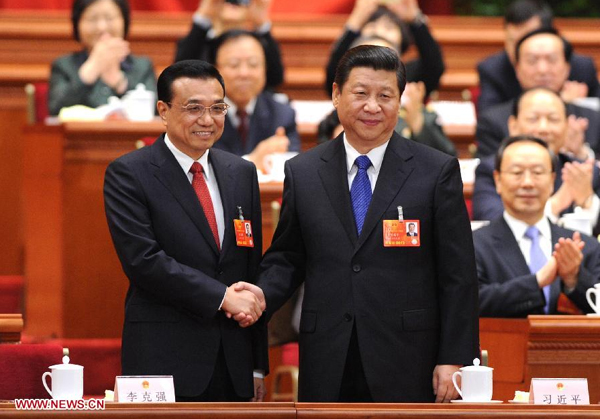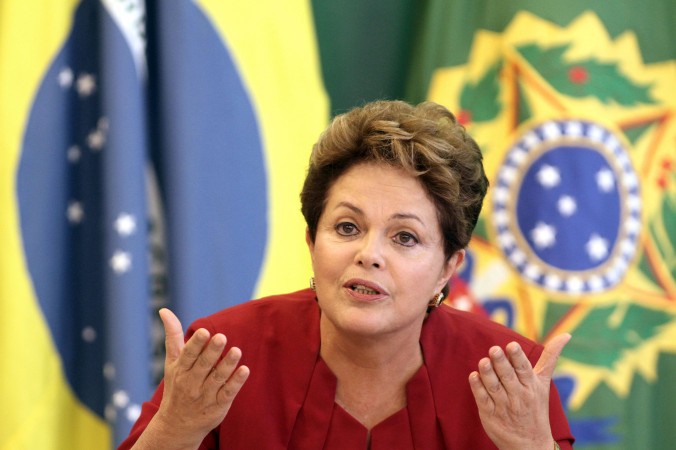
When the Goldman Sachs economist Jim O’Neil coined the phrase BRIC’s in 2001, it was used to explain the opportunity that faced the countries of Brazil, Russia, India and China in a post-America 21st century. The rise of these four large, populous nations was also seen as a positive for the old economies in Europe, as the E.U invested heavily in these nations as new markets for European trade presented themselves. But nearly 15 years on and with the addition of South Africa to the group, has the optimism waned?
The economic performance from the group of nations recently, certainly presents the presence of transitional challenges as the first wave of rapid growth begins to slow. This month we have seen Brazil’s interest rates rise to the highest level in 6 years in efforts to reduce high inflation. However, it could equally end up plunging the country in to a deeper recession. Russia’s economy is suffering under the weight of financial sanctions and a large decrease in the price of oil.
The groups largest economy is also slowing, although China’s growth rate of 7% as presented by the Chinese Premier this week, would be welcomed by much of the western world, Premier Li Keqiang clearly announced an end to the days of double digit economic growth. India has also experienced a slowing economy with inflationary pressures recently. But the arrival of the Modi government in May 2014 may prove to be telling moment as these countries try to become economic superpowers.

PRC’s President Xi Jinping (right) and Premier Li Keqiang (left)
Of course no economy can expect to grow forever, but the grand prospects of the much lorded foursome does not look as inevitable as they did at the turn of the century, which inevitably impacts the prospect of an alternative to American dominance in the 21st century. Although the slowing of the U.S bond buying programme which created a tide of flowing money to developing nations has impacted the BRICs. There are more deep routed problems at the heart of why we have seen recent mediocre results. One feeling is that complacency and over confidence has hindered the development of these nations. A decade and a half of western politicians and economists calling the BRIC’s the new heir’s to world economy, has seen the leaders of these countries take the message as an unavoidable truth and pass up the difficult challenges and investment these countries need to implement, to continue their economic rise and make these statements a reality.
In Brazil red-tape and poor investment in infrastructure continues to constrain the economic potential of the country. The demonstrations to impeach the Brazilian President Dilma Rouseff has shown the frustration the electorate has at systemic corruption at the top tiers of government. Furthermore the reliance on natural resource wealth, a problem it shares with its Russian counterpart, which in the light of a dramatic fall in the price of oil, has shown both economies lack of diversity. While much of Europe has been dependent on Russia’s oil exports in recent years, this is a two way street with the EU’s high value added items going the opposite way and as Russian hydrocarbons become harder and more costly to find, the future sustainability of this model is put into question, independent of the conflict in Ukraine.

Public favour impeachment of Brazilian President Dilma Rouseff
Meanwhile in Asia, China faces the difficult process of how to shift to a new economic model as the cost of manufacturing inevitably rises. China’s solution to this problem can be seen in every major city in the country, as Manhattan style sky lines pop up from Shanghai to Chengdu at devastating pace. This largely showy and wasteful use of resource has left China with a huge oversupply of properties and caused debts to spiral. The less than transparent nature of much of this debt could also add to the problems China deals with in the future.
Yet the new Modi government is showing the way for the rest of the BRIC countries to continue their rise into large modern economies. Narendra Modi won a landslide victory on the back of promises to rejuvenate the rapidly slowing economy, to create jobs and rein in inflation. The proposal of his first full year budget last month has sought to do this by sweeping away the cobwebs of a socialist past and promoted a business friendly attitude. This more market led approach to running Asia’s third largest economy has come in the form of corporate tax cuts and guarantees of cutting red-tape, infrastructure bottlenecks and promoting foreign investments. These changes have woken up Indian growth, as expectations are for the economy to rebound significantly and grow at 8.5%. These business friendly reforms provide a glimpse to a more sustainable model of growth that the other BRIC members can replicate.

Narendra Modi
The slowing down in economic expectations for many of the BRIC countries may provide the perfect opportunity these countries need to take stock and make the necessary reforms. We might not see all the BRIC countries come out of this economic slump and reach the expected heights, but the ones that continue to adapt and change will make their people richer and have a larger say in the way the world meets its challenges in the future. For the E.U there’s still great opportunity in the rise of the BRIC counties through greater trade and in world affairs, as Europe positions itself as a geographic and a political middle ground between western and eastern superpowers. We might just have to wait a little longer for this world to emerge than Jim O’Neil first thought.
By Alex Norwood, Junior Writer for Daily Political View.
Twitter: (@anorw00d)


